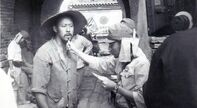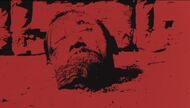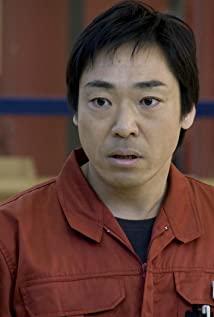I have always wondered why "The Devil Is Coming" was banned?
The reason is, of course, a matter of historical standpoint.
"On the one hand, the film did not show the hatred and resistance of the Chinese people to the aggressors against the backdrop of the Anti-Japanese War, but instead highlighted and exaggerated their ignorance, numbness, and servility."
It is said that this is the reply of the film bureau to "The Devil is Coming".
Whether art can truly reflect the problems of the current era does not need to be discussed too much. History has proven countless times that banned works will be seen again sooner or later.
After watching "The Devil is Coming", I have a few deep feelings!
One is to mourn for his misfortune, and to anger him for not fighting. The people in "The Devil Has Come" are the same as the image of Ah Q in Lu Xun's writings, ignorant, numb, and servile;
The second is the hatred of the Japanese invaders. The scene of sugar-sharing, I heard similar stories from the older generation, and it doesn't seem to be fake. But as the film progresses, the faces of the invaders are terrifying. In the final clearing, it is extremely terrifying, so real that it is terrifying, and it has a strong sense of substitution. This is not comparable to those anti-Japanese dramas. Watching those dramas sympathized with the Japanese invaders. I don't know how the radio and TV look.
There is still resistance at the end of the film, but this resistance was initially covered up by another wave of ignorance. Human nature, where to go in the environment, this question really can't be done.
View more about Devils on the Doorstep reviews










